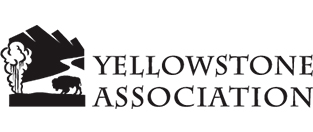The trusts continue to give a hard time to the tax payers, as well as to the practitioners, and, even though, now it really exists in a French Tax Law, there are a lot of uncertainties rest concerning number of issues.
This law concept is polymorph and it brings all the difficulties that we face to understand.
The question of the taxation of the trust incomes was not waiting for the corrected financial law from the 29th July 2011(L. n° 2011-900, 29 juill. 2011, art. 14 : Dr.fisc. 2011, n°30, comm. 461) to arise and the answers, brought by the French legislator, articulate around two texts the cooperation of which is not always evident.
TAXATION OF THE INCOMES OF THE TRUST: THE LEGAL BASIS
Article 120,9° of the French General Tax Code (CGI): taxation of the distributed products
Among two existing legal bases, the article 120,9° is the most ancient one. It specified in the first version, that « The production of «trusts», regardless the consistency of the assets composing the trusts is considered as the incomes under the present article (…)9°».
The aforementioned corrected financial law for the 2011 was intended to modify the text which since that moment is as follows: «The distributed products of trust, defined in the article 792-0 bis, regardless the consistency of the assets or the rights put in the trust, are considered as the revenus under the present article (…)9°».
This last modification is present in the report by the Financial Commission of the National Assembly as the will to «limit a taxation of the distributed products, thus to exempt the reinvested products».
Thus, this article issues the rule of taxation of only the distributed profits or provided to the natural person by the foreign entity.
Hence, it follows from the only fact that the production is made by the trust established abroad, that the complex of those products is liable to taxation without proving by the taxation authority that those incomes come, partly or in the whole, from the foreign chattel or from the foreign debt obligations (BOI-RPPM-RCM-10-30-10-10, 4 mars 2016, § 130).
Indeed, and according to this rule, the production acquired of the capital, but which stays placed and capitalized in the foreign entity is not liable to taxation in France.
At the time of the adoption of the financial law of the 1999 ( L. n° 98-1266, 30 déc. 1998, art. 101 : Dr. fisc. 1999, n° 1, comm. 1), having created the article 123 bis of the French General Tax Code (CGI), the target was clear: to prevent tax evasion by non-distribution of the incomes of the assets indirectly held in the entity located in the State or on the territory with the privileged taxation politics.
Article 123 bis of the French General Taxation Code (CGI): the taxation increased by transparency of the capitalized production
This article that tends to finish with a principle of liability of limitless taxation, constitutes the principle of the taxation in France of the incomes, acquired by a natural person, a French tax resident, who holds directly or indirectly, participation of minimum 10% in the entity, established in the country, where it benefits a privileged tax system for the incomes or not distributed results of activity.
Thus, the taxation is based on the rights, held by the tax payer on the benefits and positive results of the foreign entity, which, in conformity with an article 209B, is a «natural person».
The type of the aimed structure is very vast as along with the notions of the legal entity, of institution and trusts, we find also the notion of «comparable institutions», so as not to exclude anything of the scope of the text.
The trusts were, besides, specifically aimed by the report of the Financial Commission that justified the non-use of the word «trust» by the constitutional obligation that is «the language of the French Republic is French» and that which concluded, on this «francophonic» note, that it did not have intention not to comprehend the structure, specifically cited in 9° of the article 120 (that is trust).
Uncollected incomes, corresponding, thus, to the category of the incomes of the real estate and are liable to taxation on the increased tax base of the 25% (CGI, art. 158, 7,2°) of the tax rate from the scale without tax allowance of 40% (CGI, art. 158, 2,3°), applicable to the dividends as well as to the social security contributions of the current year in which they were acquired.
Combination of the legal bases
A combination of the texts without collision
Since the conditions of the application of the article 123 bis are fulfilled, it is suitable to put a tax on the incomes of the foreign entity on that basis.
The article 120,9° should not be applied except than residually and without putting tax second time on the same incomes, which were already subject to the taxation under the article 123 bis.
The risk of cumulation of the taxation bound with a principle of the taxation of the non-distributed incomes was already pointed out by the parliamentary works of 1999.
The report of the Financial Commission specified that it was necessary «to be sure that the incomes are not levied for the second time at the time of their distribution, as the article 120 of the French General Tax Code (CGI) provides that the paid out and, therefore, collected abroad financial profits should be liable to the taxation in the France».
This risk was excluded by the 4° of the article 123 bis, providing that the distributed or payed to the natural person, liable to tax, incomes, constitute the taxable income only in the part exceeding the sum on which the tax was put as on the acquired incomes.
On the practice, the case of the exceeding distributed incomes to the acquired incomes stay rare, thus the articles 123 bis and 120,9° are combined in very seldom cases.
A possibility to go out of the scope of the article 123 bis of the French General Tax Code (CGI)
Till recently, since it was proved that conditions of application of the article 123 bis were fulfilled, the positive incomes of the entity, which are considered to constitute a chattel capital of the natural person in the proportion of the rights, which it holds directly or indirectly.
It is about irrefragable presumption and the tax payer could not go out of the scope of the article 123 bis from the moment it went in.
In the recurrent context of the censorship by the Constitutional Council of the irrefragable presumption, the Priority Question of Constitutionality (QPC), raised in the case Nabitz, came just at the right moment.
The Council have drawn a direct line of its previous decisions and, if it has validated the conformity of those derogatory rules to the Constitution it is under condition that the natural person will be able to prove, that the participation that it holds in the entity established in this State neither aims nor allows for the purpose of the fraud or tax avoidance, the localization of the incomes abroad (Cons. const., 6 oct. 2017, n° 2017-659 QPC, Nabitz : Dr. fisc. 2017, n°41, act. 552).
Such a demonstration, from now on, helps tax payer to avoid the application of an article 123 bis to benefice the common rights of an article 120,9°.
A difficult application of an article 123 bis of the General Tax Code (CGI) to the trusts
Since the mechanism of an article 123 bis implicate that the natural person holds at least 10% of an entity, the application of the article to the trusts seems delicate and difficult.
On this point, the report of the Financial Commission of National Assembly about the project of the corrected financial law for the 2011 was clear: «the article 123 bis, assuming that the natural person pays taxes transparently and holds 10% of the entity, the provision which is, in the reality, applied rarely (almost never) to the trusts».
On this point, we totally agree with Bruno Gouthière who estimates that the application of the article 123 bis to the trusts requires that the founders would decide beforehead that the trustees should actually distribute to the beneficiaries the sums representing at least 10% of the trust’s incomes (B. Gouthièr, Les impôts dans les affaires internationales: Ed. Francis Lefebvre, 11e éd., n° 50385). Even if this hypothesis is not unlikely, but it is not the one we face very often.
However, there are still the cases in which the trust’s incomes could be taxed under article 123 bis, it is the case of the entities established on the not-co-operative territory or in state (ETNC).
In this situation actually, the article 123 bis, 4 ter specifies that the condition of the holding of 10 % is supposed to be fulfilled and that the taxable incomes of a natural person, thus, cannot be inferior the fixed amount, which represents a taxable minimum: if the application of the EC law leads to the superior taxable incomes, it will be the latter that will be liable to tax – on the product of the fraction of the net assets or the net values of the entity, corresponding to the rights of the tax payer on the profit, resulted of the average interest rates applied by the credit organizations (currently 1,67%, V. avis, 28 juin 2017).
This very same rule of taxation is applied to the States of the Territories, which have not entered into the convention of the administrative assistance, but the presumption of the holding is not applied.
Since the decision of the Constitutional Council of the 1st March 2017 ( Cons. const., 1er mars 2017, n° 2016-614 – QPC : Dr. fisc. 2017, n° 10, act. 159. – V.C. Acard, Fiscalité financière : Dr. fisc. 2017, n° 21, étude 318, n° 20) it only a simple presumption.
The tax payers, thus, are justifiable to avoid this particularly strict rule of a taxation, providing an evidence that the incomes actually received by the intermediary of the entity, are inferior to the incomes defined as a fixed sum applying this provision.
The Grid of Reading and application of the texts
It seems possible to indicate different situations and to join there the basis, serving to tax the incomes.
We present this grid of the synthesis in the form of a hypothesis and sub-hypothesis.
Hypothesis 1: The trust is the structure about which we can affirm that the natural person holds at least 10% of the entity.
Hypothesis 1.1: The trust is situated in the country with a privileged tax politics.
Hypothesis 1.1.1: The natural person is capable to demonstrate that the participation, holding by it in the entity, do not aim and do not allow the localization of the incomes abroad for the purpose of fraud or tax avoidance: application of only the article 120,9°.
Hypothesis 1.1.2: The natural person cannot report such a prove: application of the article 123 bis and, if needed, of the article 120,9°, if the distributed incomes exceed the acquired incomes.
Hypothesis 1.2: The trust is not situated in the Country of Privileged Tax Politics: application of only the article 120,9°.
Hypothesis 2: The trust is not structured and it is not possible to relate any participation to the natural person: application of only the article 120,9°.
Hypothesis 3: The trust is located in the not-co-operative territory or state (ETNC): the incomes liable to tax cannot be lower than the product of the fraction of the net assets or net values of the entity corresponding to the rights of a tax payer on the profit resulting from the average interest rates habitual for the credit organization (CGI, art. 123 bis, 3°, al. 2).
Hypothesis 3.1: The tax payer is capable to report the prove that the incomes, actually received by the intermediary of a moral person are inferior to the incomes, defined in a fixed sum: application of an article 123 bis, 1°. It seems, thus, consistent to admit that in this situation, the natural person can also prove that the participation, held by it in the entity, established in the not-co-operative territory or state (ETNC), does not aim and does not allow localization of the incomes abroad for the purpose of fraud and tax avoidance, to be able to go out of the scope of the article 123 bis and to enter to the scope of the article 120,0°.
Hypothesis 3.2: The tax payer is not capable to demonstrate that the incomes, actually received by the tax payer of an entity are inferior to the minimal limit of the incomes, defined as a fixed sum: application of a derogatory rule of the article 123 bis, 3°, al.2.
In the sense of transparency imposed today to the trusts and assimilated entities by the law of 29 July 2011, the administrators should fulfill the restrictive declarative obligations (CGI, ann. III, art. 344 G sexies et septies).
These obligations have surely the function to show that the settlors and, moreover, the beneficiaries considered as settlors or the simple beneficiaries were not led by the willing to use the trust to localize their incomes abroad for the purpose of fraud or tax avoidance.
The traceability of the assets and the capitalized production was made possible by the subscription of the factual declarations.
Thus, it helps to know with all the transparency:
– the distributed incomes taxable by the application of the article 120,9°;
– the allocated capital, not representing the incomes and not characterizing a free transmission, because they are captured by the settlor himself after contribution to the trust, or by the beneficiary, considered as a settlor after a regularly declared transmission;
– the attribution of the incomes, coming from the capitalized production of the free transmission of the property including this production.
It is clear, the case of the taxation of the incomes of the trust under the rules of the article 123 bis should be relatively rare.
The majority of the taxation should be made in conformity with the article 120,9° and only the distributed incomes should be aimed.
In this regard, the solution imposed by the Tax Authority in the frame of the regularization the assets, held abroad that consisted the taxe base of the production of the trust and other similar entities under the article 123 bis, could be justified in the majority of the cases treated by the Corrected Declarations Treatment Service (STDR).
Actually, the regularization concerned the time when the contribution was held as a secret and when the incomes were subtracted of the tax.
Now it is not the case and it is a time to feel the consequences that arise while applicating the tax politics to the incomes, generated by the trust, which is in conformity with the constitutional principles, as well as with the international obligations of France.
fichier à telecharger:
 171214 THE DELICATE QUESTION OF THE TAX TREATMENT OF TRUST’s INCOMES (la délicate question du traitement fiscal des revenus des trusts)
171214 THE DELICATE QUESTION OF THE TAX TREATMENT OF TRUST’s INCOMES (la délicate question du traitement fiscal des revenus des trusts)





